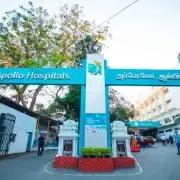How to Apply for a Medical Visa to India?
In This Article
How to Apply for a Medical Visa to India?
Pooja
Updated on October 19, 2024
Medically verified by Dr. Arya
Fact checked by Dr. Fazeela

Medical Travel
10 mints
India has become a popular destination for medical tourists, offering world class healthcare facilities at affordable prices.
Every year, thousands of people from around the world travel to India seeking treatment for a variety of conditions.
If you're considering travelling to India for medical treatment, you'll need a medical visa to enter the country.
This blog by Karetrip will walk you through the process of applying for a medical visa to India and provide key takeaways to ensure a smooth application process.
What is a Medical Visa?
A medical visa is a special type of visa issued to foreign nationals who wish to visit India for medical treatment. It allows the visa holder to stay in the country for the duration of their treatment and, if necessary, can be extended based on medical requirements.
However, the visa is granted only to those who meet specific conditions related to their medical needs and have proper documentation to support their application.
Eligibility for a Medical Visa
To be eligible for a medical visa, applicants must satisfy the following conditions
1. Purpose of Visit: The primary reason for visiting India must be to receive medical treatment. This can include treatment for conditions like heart surgery, neurosurgery, organ transplants, or other major health concerns.
2. Treatment at Recognized Hospitals: The medical treatment should be from a reputed or recognized hospital or healthcare provider in India. You must have documentation from a certified healthcare institution that confirms your diagnosis and the recommended treatment.
3. Medical Documents: You must provide medical records from your home country that detail your diagnosis and the recommendation for treatment in India. A letter from the best hospitals in India confirming that they can provide the necessary treatment is also required.
 10 min Read
10 min ReadBooking Budget Friendly Accommodation Near Apollo Hospital, Greams Road
 10 min read
10 min readWhere can I exchange Bangladeshi Taka To Indian Rupees?
 10 min read
10 min readUnique Bangalore: Unusual & Intriguing Places to Explore While Staying In The City For Treatment
Get a Callback Now
Step by Step Guide to Applying for a Medical Visa to India
1. Preparing the Required Documents
Before applying for a medical visa, you need to gather the following documents
-
Valid Passport: Ensure that your passport is valid for at least six months from the date of your intended arrival in India. It should have at least two blank pages for visa stamping.
-
Recent Passport Sized Photographs: You'll need clear, recent passport sized photographs with a white background. Make sure they adhere to the specifications provided by the visa authority.
-
Medical Records: Obtain medical records or documents from your home country that detail your diagnosis. This includes the doctor’s recommendation for specialised treatment in India.
-
Letter from Indian Hospital: A letter from the hospital or healthcare provider in India confirming that they have agreed to treat you. The letter should outline the nature of the medical condition, the treatment plan, and the expected duration of treatment.
-
Proof of Financial Capability: Provide documentation showing you have the financial resources to cover the cost of your treatment and stay in India. This could be bank statements or a financial affidavit.
2. Filling Out the Application Form
Once you have all the required documents, the next step is to fill out the Indian visa application form, which is available online on the official Indian visa website. Follow these steps: BOX
-
Visit the official Indian Visa Online portal.
-
Choose the option to apply for a medical visa.
-
Complete the form by providing accurate information, such as your personal details, travel dates, and the purpose of your visit. Ensure that the information matches the details in your passport and medical documents.
-
Upload scanned copies of your passport, photos, and supporting medical documents, as required.
-
Double Check the form for accuracy before submitting it.
3. Paying the Visa Fee
After submitting the application form, you will be prompted to pay the visa fee. The fee varies based on your nationality and the duration of your stay. Payments can typically be made online through a secure payment gateway. Keep the payment receipt for future reference.
4. Scheduling an Appointment for Biometrics and Interview
Attend the appointment on the scheduled date with all your documents, including the printed visa application, payment receipt, passport, medical records, and hospital letter. During the interview, be prepared to answer questions about the purpose of your visit, your medical condition, and your plans to return to your home country after treatment. The embassy may ask for further documents, so it’s important to have all necessary paperwork in order.
5. Processing and Tracking Your Visa Application
After the appointment, the processing of your medical visa begins. The standard processing time can range from a few days to several weeks, depending on the country from which you are applying. You can track the status of your visa application on the Indian Visa Online portal using your application reference number.
Once your visa is approved, it will be stamped on your passport, allowing you entry to India for your medical treatment.
Important Considerations
- Visa Validity and Extensions
The medical visa is typically valid for up to 6 months or the duration of your treatment, whichever is shorter. In some cases, you can apply for an extension if the treatment requires a longer stay.
Extensions must be supported by documentation from the treating hospital in India.
- Medical Attendant Visa
Patients are allowed to bring up to two attendants, such as family members, to accompany them during their treatment.
These individuals can apply for a medical attendant visa, which is tied to the patient’s medical visa. The attendants must follow the same application process as the patient and provide proof of their relationship.
- Medical Insurance
Before travelling, it's crucial to have comprehensive medical insurance that covers not only the cost of treatment but also potential medical complications or emergencies that may arise during your stay.
Medical treatment in India is more affordable than in many Western countries, but insurance will ensure you are fully protected.
- Staying Safe and Informed
While India offers excellent medical facilities, it's important to take precautions when travelling for treatment. Research your hospital and doctor thoroughly, stay in touch with local authorities, and have a clear understanding of the healthcare system in India.
Many healthcare providers in India offer services for international patients, including translators, travel arrangements, and assistance with accommodation.
Key Benefits
-
India is one of the most popular destinations for medical tourists due to its high quality healthcare services and affordable costs. Here are a few reasons why India is an attractive option for medical treatment
-
TopNotch Healthcare Facilities: Indian hospitals are equipped with state of the art technology and are staffed with highly skilled medical professionals, many of whom have international experience.
-
Affordability: Compared to countries like the US, UK, or Europe, the cost of medical treatment in India is significantly lower. Patients can receive world class healthcare at a fraction of the price.
-
Short Waiting Times: In many Western countries, patients must wait months or even years for certain medical procedures. In India, the waiting time is much shorter, making it an ideal destination for those seeking timely care.
-
Tourism Opportunities: India offers a rich cultural experience for patients and their companions. Many choose to combine their medical treatment with tourism, exploring India’s historic landmarks and diverse landscapes.
The information provided represents the views and opinions of Karetrip. It is crucial to conduct your own independent research before making any decisions regarding your healthcare journey.
Ensure your medical visa application is supported by documents from both your home country’s doctor and the Indian hospital.
Fill out the visa application form carefully and submit all required documents.
Be prepared for an interview or biometrics appointment, if necessary.
Remember that medical visas are typically valid for up to 6 months, and extensions may be granted.
Medical tourists to India benefit from quality healthcare, lower costs, and shorter wait times.
Source Links
Ministry of Home Affairs
Indianvisaonline

